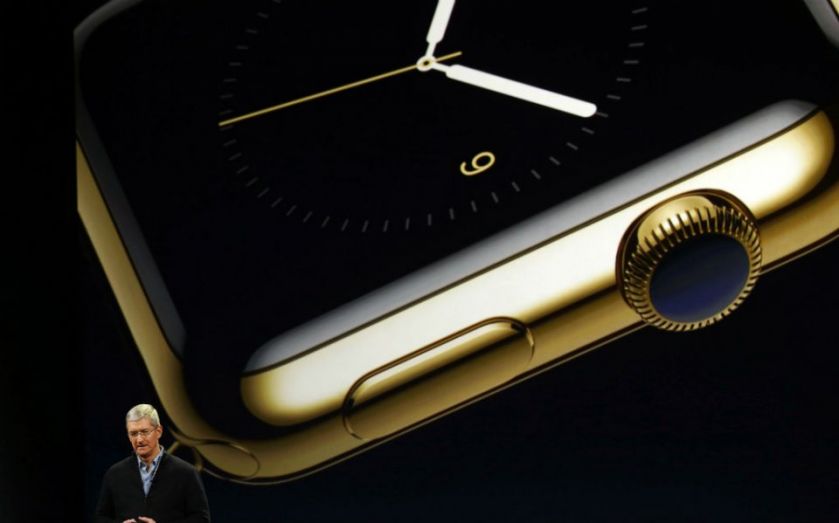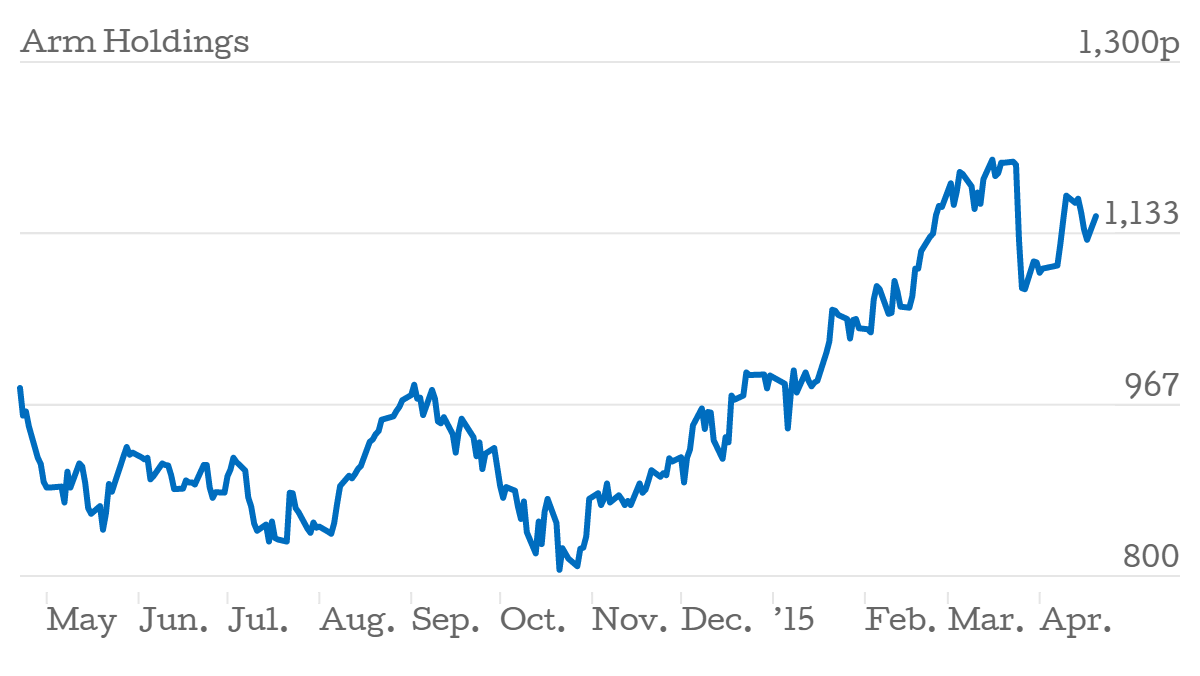Arm Holdings share price jumps as revenues rise 22 per cent

The figures
One of the darlings of the UK's tech scene has reported revenues up 22 per cent to £227.5m in the first quarter, as sales in the phones its chips power jumped.
Arm Holdings, which licenses its chip designs to the likes of Apple and Samsung, said pre-tax profits had jumped 24 per cent to £120.5m, pushing earnings per share up 27 per cent to 7.1p.
Investors were clearly happy: shares in the company opened six per cent higher, at 1,215p.

Why it's interesting
Arm is one of the few UK tech firms to properly break America: the company, which was spawned by Cambridge University, has, in recent years, threatened to oust Intel from its top spot as Silicon Valley's favourite chip company.
With its low-powered processors, Arm's greatest opportunity may lie in the Internet of Things – the slew of web-connected TVs, fridges, washing machines, etc, hitting the market now. In February, it gave a clear sign it was positioning itself as a market leader, buying Dutch firm Offspark, which specialises in security software for the Internet of Things.
The acquisition came after a tough year for Arm, which posted third-quarter results showing lower-than-expected royalties. But today's results suggest that may have been no more than a blip: as sales of devices such as the Apple Watch and the iPhone 6 power ahead, Arm looks like it's back on top.
What Arm said
As the world becomes more digital and more connected, we continue to see an increase in the demand for ARM's smart and energy-efficient technology, which is driving both our licensing and royalty revenues.
In recent months many handset [manufacturers] have announced smartphones and tablets based on ARMv8-A and Mali graphics processors. As production of these mobile computers start to ramp up in the second half of the year, ARM will benefit from the higher royalty percentage per chip that these technologies deliver compared to the processors in previous generations of mobile devices.
In short
Following a wobble at the end of 2014, Arm's shift towards the Internet of Things looks like a sensible move.